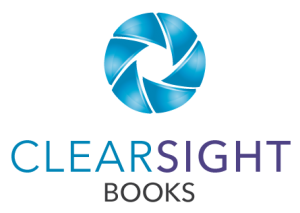
A client called me, confused. “I think I paid tax on my author copies, and then the bookstore that I took them to for an event also collected sales tax. My books aren’t supposed to be taxed twice, are they?”
No indeed.
Let’s take a fun foray into every author’s favorite topic: sales tax.
DISCLAIMER: This is a general description of how sales tax typically works in US states. It is not intended as legal or financial advice. Tax rules and procedures vary by jurisdiction, so you’ll need to research the details for your own situation and location. And when in doubt, consult your accountant.
How Sales Tax Works
You’re familiar with the concept of sales tax: When you go to the department store and buy a new toaster for $30, you pay sales tax on top of the price. Where I live, it is 7.25%, so I would pay $32.18.
When the department store bought the toaster, however, they bought it wholesale, so it probably cost them only $15, and they did not pay sales tax. For that to be the case, the store must be registered with the taxing authority (the state) as a reseller.
On a periodic basis, the department store sends all the sales tax they’ve collected to the state. To make it easier for merchants to submit sales tax, the state often collects all the sales tax required at the state, county, and local level, and then apportions it out to the other jurisdictions. (Not all states function this way, so do your homework.)
The same general process that applies to the department store can be used by self-published authors. If you have the right certificate, you can buy author copies without paying sales tax, collect sales tax from customers when you sell the books, and then periodically remit the taxes collected.
(If you are published by a traditional publishing house, consult your contract for how you can acquire books and sell them—you may have other constraints.)
And, if you consign your books, the bookstore (or other selling organization) becomes responsible for collecting the sales tax, so you still want to make sure you don’t double pay.
Sales Tax Certificate
A sales tax certificate gives you the authority as a retailer/reseller to collect and remit sales tax. The certificate may have a variety of names: sales and use tax certificate, certificate of registration, sales tax permit, seller’s permit, resale permit, tax registration certificate.
You typically apply for a permit online or by mail, and there is sometimes an application fee. Google something like “[State Name] sales tax certificate” or go to your state department of revenue to search for information.
Once approved, you will receive an account number to use when filing sales tax and a certificate that must be displayed when you are selling books. (If you pay attention, you will see these certificates posted at retailers, often by the cash register.)
Purchasing Author Copies Tax-Free
On both Kindle Direct Publishing (KDP) and IngramSpark (IS), the two main self-publishing platforms, you can buy author copies of your book at cost (plus tax and shipping). So instead of paying $17.95 for a retail copy of your book, you buy copies for $5.41 each (plus tax and shipping).
You can also enter your sales tax registration information so that KDP and IS know you are exempt from paying sales tax. Once you have your certificate, go to your account, look for the tax section, and fill out the needed forms. The next time you buy author copies, you will only pay the price plus shipping. This is a one-time action you take in your account (i.e., you don’t have to repeat it for each purchase).
If you haven’t provided this information to KDP and IS, you are almost certainly paying sales tax on your author copies.
Selling Your Books and Collecting Sales Tax
When you sell books yourself, you collect sales tax. If you use a payment app such as Stripe or Square, you can have it calculate the tax for you; you just set up your products and tell the app the right tax rate.
Or, if you are holding an event and want nice easy numbers so you don’t have to make change, you can give the book price with the tax included. Essentially you offer a special event price that with tax adds up to something nice and even. For example, if my book is normally $18.95, with 7.25% tax, the total would be $20.32. By setting an event price of $18.65, the total with tax is an even $20.
Also, recall that the state often distributes the county and local portions of the sales tax collected. Tax rates often vary by location. For example, I live in Raleigh so the total rate is 7.25% (4.75 % state + 2.0% Wake County + 0.50% transit tax). But if I drive a half hour over to Chapel Hill, the rate is 7.5% (4.75 % state + 2.25% Orange County + 0.50% transit tax). Don’t forget to track where you are making sales, and be sure to collect the correct amount.
Use Tax
Let’s say you purchase a book without paying tax, intending to resell it, but then you give it to someone as a gift. The book is no longer available for resale, and since you have not yet paid sales tax, you must pay what’s called “use tax.”
So while people typically just talk about “sales tax,” consider that shorthand for “sales and use tax.” Sales tax and use tax are usually reported together, so be sure to track “uses” as well as your retail sales.
Remitting Sales and Use Tax
Typically, sales and use tax that has been collected is reported and remitted on a monthly or quarterly basis. If you have relatively low sales, it is likely to be quarterly. PUT THE DUE DATES ON YOUR CALENDAR.
If your state apportions the amounts due to county and local entities, they can’t do that unless you tell them where you made your sales. You may need to enter this information in detail, thus the need to track sales location.
Complication 1: Out-of-State Sales
If you keep in-person sales within your state, things are fairly straightforward. While you do have to track each sale’s location, the reporting process is all together.
However, if you travel and make sales out of state—for instance, when you are speaking at a conference—things can get stickier. Each state has its own processes and rules, and you may need a tax certificate for each state in which you make sales. You can probably see how this could quickly become a headache. Recommendations:
- First, make sure you know the rules before you start making any sales in a new state.
- Second, if you are attending an event where the sponsoring organization will do the selling for you (consignment) and thus handle the sales tax, that may be the easier way to go.
Complication 2: Shipping
If you are shipping within your own state, the regular sales tax rules apply, but you’ll need to determine whether to use the Ship To address as the location for the sales tax rate or the Ship From address. (Where I live, it is the Ship To address.)
If you are shipping to another state, you may not need to collect sales tax if you don’t have a physical presence in that state. However, this too varies and may apply only when your sales are under a certain volume and total dollar amount, so be sure to look up the rules.
If you really don’t want to deal with out-of-state shipping, encourage people to purchase your books through retail channels, such as Barnes and Noble or Amazon, so the sales tax is taken care of by the retailer.
Do I Really Need to Do Sales Tax?
If the only sales you do are in third-party retail channels—that is, if you expect all your customers to purchase from Amazon.com or to go to their local Barnes and Noble—and you do not plan to do any selling yourself, I suppose you could skip the sales tax certificate.
However, most indie authors want to sell books, and I trust most don’t want to pay more tax than required, so yes, you probably really need to do sales tax. If it helps, keep in mind that plenty of folks have managed to collect and remit sales tax before you. It might be tedious, but it is definitely doable.
ONE MORE REMINDER: This is not financial or legal advice. Do your research!
And then—happy selling!
Normally I would tell you to get in touch if you have questions about one of our articles. Not this time. You wanna talk taxes, call your accountant! (If you do want to talk books though, here I am: karin@clearsightbooks.com.)

